We have been fielding a number of questions about the IB Diploma Programme these last few weeks during and since the open night.

The following questions were among the most frequently asked:
Q: Is the IBDP mainly for students going to University overseas?
A: Not at all. In fact, the vast majority of our IB students have gone on to tertiary studies in New Zealand. If students want to study overseas, both the NCEA and IB are internationally recognised. The IB is well known overseas as IB programmes are delivered in over 5,000 schools in 153 countries.
Q: Is IBDP only externally assessed at the end of the two years?
A: No - as in NCEA, students complete both internal and external assessments. For Visual Arts, for example, there are no exams. Internal assessments include oral presentations, laboratory work, investigations and portfolios. However, compared to NCEA, a greater emphasis is placed on external assessment in most IB subjects. The exam questions are quite different from NCEA style questions and include essays, structured problems, short-response questions, case-study questions and multiple-choice questions.
Q: Do IBDP students have time for anything beyond academics?
A: Absolutely. Most successful Diploma Programme students lead full lives. They are often members of senior sports teams and involved in a wide range of activities. Time management and organisation are key skills the IB develops in students.
Q: What are the advantages of taking the IB Diploma to prepare for University studies?
A: Students with IB Diplomas report that their involvement with IB has given them the tools needed to succeed at university and to make the most of their tertiary education.
Q: Do IB teachers receive special training?
A: All IB teachers receive professional development by certified IB workshop leaders. This is a requirement of IB World Schools implementing the Diploma Programme.
Q: Is the IBDP considered a “gifted” programme?
A: Not necessarily. The IB does not control how schools designate their Diploma Programme. The IBDP is open to any student.
Q: Why do I have to take a language in IBDP?
A: The IBDP aims to create global citizens who are self-aware and have intercultural awareness. Learning a language not only provides students with an excellent skill to add to their toolkit, but it also exposes them to other cultures and ways of thinking that challenge their viewpoint and encourages them to be more open-minded and understanding of other people.
If students have not studied a language in Year 11, they can take an Ab Initio language. However, if students study a language in Year 11 and continue that language at Language B level, they will leave school with a high level of language competence.
Q: Is the IBDP harder than NCEA?
A: Students can initially find IB challenging because it puts them out of their comfort zone. Initially, they realise that there is a big focus on students taking responsibility for their learning. Soon enough, though, students learn that there is a lot of support throughout the programme from teachers, mentors and other students. IB students generally enjoy the freedom and independence that the IBDP provides, and appreciate the opportunity to have more choice to focus on their personal interests within their subjects.
Q: What kind of student is a good candidate for the IB?
A: An IB student needs to show motivation, a determination to do their best, a willingness to organise themselves so that they can complete the work and lead full and balanced lives at the same time. They need to be willing to work with others, and to participate in class. In our IB programme, students learn a lot from our teachers, but they learn most by interacting and cooperating with each other.

A message to students thinking about undertaking the IBDP at John McGlashan College from Luke Jarvie - one of our IB students from the past.
For those that don’t know me, I attended John McGlashan College from Year 11 (2014) to Year 13 (2016), of which I completed the International Baccalaureate Diploma during my Year 12 and 13 years.
The International Baccalaureate Diploma Programme provided a great base for further study at University, and I am glad I made the decision to undertake the challenge when sitting in the same seats as you six years ago. Personally, I found both the teaching style and learning style of the program to be extremely beneficial during my University studies. The International Baccalaureate requires a lot of self-discipline, hard work and time management - but don't be put off by this, one of the great things about this program is that it enables you to find your feet in these areas, sometimes by trial and error… something that will set you apart from your peers come University. Another awesome part of the program was its emphasis on a holistic learning approach combining the sciences, languages, arts, economics and various other courses available in the program. Put simply IB was great in teaching me how to learn, which is a skill invaluable in future life and study.
I am happy to recommend the program as I feel it benefited me significantly in getting to where I am today, but it may not be for everyone, take special consideration in how you learn best and what will benefit you most, and also consider the path you may eventually want to take and how IB may or may not be the most appropriate course.
If anyone has any further questions, wishes to contact me for advice or is even interested in pursuing study in the medical field I am always available and happy to help out.
With whatever you choose boys all the best,
Luke Jarvie
Remember: the IB Diploma Programme is different from other curricula because:
it encourages students of all ages to think critically and challenge assumptions
subjects are not taught in isolation
it encourages students to consider both local and global contexts
it develops multilingual students
If you want to know more about the IBDP at John McGlashan College come along to the information night on the 22nd August 2019 at the College Chapel from 7 pm.

 Open Event Registration - Interested in enrolling?
Open Event Registration - Interested in enrolling? Employment opportunities - click if you're interested in working at McGlashan.
Employment opportunities - click if you're interested in working at McGlashan.